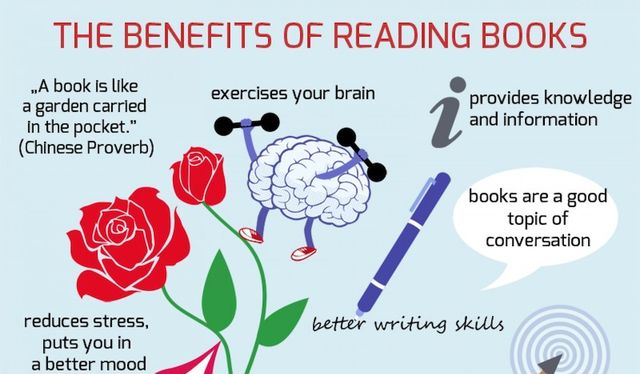Reading is an activity that has been enjoyed for centuries, providing entertainment and education to individuals of all ages. However, reading also has numerous benefits for individuals, including improving cognitive abilities, reducing stress, and fostering empathy and creativity. By incorporating reading into daily life, individuals can reap the many benefits that books have to offer.
The Cognitive Benefits of Reading
Reading can have numerous cognitive benefits, including improved vocabulary and language skills, increased knowledge and understanding, improved critical thinking and analytical skills, and better memory retention and concentration. Reading requires individuals to engage in active thinking, processing information and creating mental images, which can help improve cognitive function.
The Emotional Benefits of Reading
In addition to cognitive benefits, reading can also have emotional benefits. Reading can reduce stress and anxiety, allowing individuals to escape from their daily lives and immerse themselves in a different world. Additionally, reading can increase empathy and understanding of others, promoting social and emotional development. Reading can also foster creativity and imagination, allowing individuals to explore new ideas and perspectives.
Types of Books and Their Benefits
Different types of books offer different benefits. Fiction, for example, promotes empathy, imagination, and creativity, while nonfiction books increase knowledge and understanding. Self-help and personal development books provide practical advice and inspiration, while memoirs and biographies offer insights into the human experience.
The Benefits of Reading for Children
Reading is especially beneficial for children, as it can improve language and literacy skills, increase creativity and imagination, improve academic performance, and promote social and emotional development. By reading to children and encouraging them to read on their own, parents and educators can promote these important developmental outcomes.
Overcoming Obstacles to Reading
There are obstacles that can make it challenging to incorporate reading into daily life, such as lack of time, difficulty finding the right book, distractions and interruptions, and learning difficulties. However, there are strategies that individuals can use to overcome these obstacles, such as setting aside dedicated reading time, making a habit of reading before bed, keeping a list of books to read, and joining a book club or online reading community.
Tips for Incorporating Reading into Daily Life
To incorporate reading into daily life, individuals can set aside dedicated reading time, such as reading for 30 minutes before bed each night. Making a habit of reading before bed can also promote better sleep and reduce stress. Keeping a list of books to read can provide motivation and make it easier to find the right book. Joining a book club or online reading community can also provide social support and motivation.
Conclusion
Reading is an activity that can improve cognitive abilities, reduce stress, and foster empathy and creativity. By incorporating reading into daily life, individuals can reap the many benefits that books have to offer. Parents and educators can also promote reading for children, promoting important developmental outcomes. By making reading a regular part of daily life, individuals can enhance their personal growth and development.





